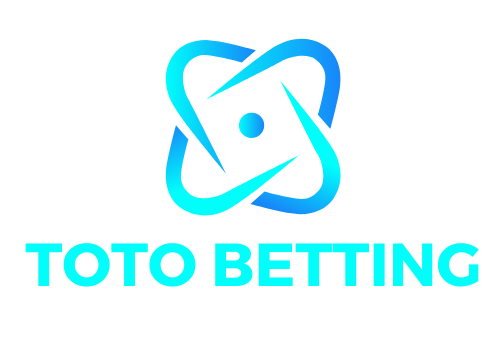Legal Insights into the Future of Blockchain in Betting
In the ever-evolving landscape of technology, few innovations have captured the imagination and potential for transformation quite like blockchain. Originally conceived as the underlying technology behind Bitcoin, blockchain has since expanded its reach into diverse industries, promising transparency, security, and efficiency in various processes. One such area poised for disruption is the realm of betting. In this comprehensive exploration, we delve into the legal insights shaping the future of blockchain in betting, examining the opportunities it presents and the obstacles it must overcome.
The Evolution of Blockchain in Betting:
The journey of blockchain technology in the betting industry has been nothing short of remarkable. From its nascent beginnings as a novel concept to its current role as a disruptor in traditional betting models, blockchain has undergone a rapid evolution. The earliest applications of blockchain in betting can be traced back to the emergence of Bitcoin-based betting platforms, which offered a glimpse into the potential of decentralized, peer-to-peer betting. However, it was the introduction of smart contracts and decentralized autonomous organizations (DAOs) that truly catalyzed the integration of blockchain into the fabric of the betting industry. These innovations enabled the creation of decentralized betting platforms, where bets are executed automatically and transparently without the need for intermediaries. Today, blockchain-powered betting platforms are gaining traction, offering users unprecedented transparency, security, and trust in betting transactions.
Regulatory Landscape:
Despite its potential to revolutionize the betting industry, blockchain technology operates within a complex regulatory landscape characterized by varying degrees of acceptance and skepticism. The regulatory environment governing blockchain-based betting platforms varies significantly from one jurisdiction to another, with some countries embracing blockchain innovation and others imposing strict regulations or outright bans. For instance, while countries like Malta and Gibraltar have positioned themselves as blockchain-friendly jurisdictions, others like China and India have adopted a more cautious approach, citing concerns over money laundering and consumer protection. The lack of uniformity in regulatory standards poses a significant challenge for blockchain-based betting platforms seeking to operate on a global scale. Moreover, the evolving nature of blockchain technology further complicates regulatory compliance, as regulators struggle to keep pace with the rapid pace of innovation in the sector.
Legal Implications of Smart Contracts:
At the heart of blockchain-based 무료스포츠중계 betting platforms lie smart contracts – self-executing contracts with the terms of the agreement directly written into code. Smart contracts have the potential to revolutionize betting transactions by automating the execution of bets and ensuring transparent and tamper-proof outcomes. However, the legal implications of smart contracts in the context of betting transactions are still being explored. One of the key challenges is the enforceability of smart contracts under existing contract law. While smart contracts offer undeniable advantages in terms of efficiency and transparency, their legal status remains uncertain in many jurisdictions. Additionally, the immutable nature of smart contracts raises questions about dispute resolution mechanisms and liability in the event of errors or discrepancies. As blockchain-based betting platforms continue to proliferate, legal frameworks must evolve to provide clarity and certainty around the use of smart contracts in betting transactions.
KYC and AML Compliance:

Know Your Customer (KYC) and Anti-Money Laundering (AML) regulations are fundamental pillars of the regulatory framework governing betting activities. These regulations are designed to prevent illicit activities such as money laundering and terrorist financing by verifying the identities of customers and monitoring their transactions. In the context of blockchain-based betting platforms, implementing robust KYC and AML protocols presents unique challenges. Unlike traditional betting platforms, which rely on centralized databases to store customer information, blockchain-based platforms operate on a decentralized network, making it difficult to verify the identity of users and track their transactions. Moreover, the pseudonymous nature of blockchain transactions adds an additional layer of complexity to KYC and AML compliance efforts. Despite these challenges, innovative solutions such as decentralized identity verification systems and blockchain analytics tools are emerging to help betting operators comply with KYC and AML regulations while preserving user privacy.
Data Protection and Privacy:
Data protection and privacy are paramount concerns in the digital age, and blockchain technology has the potential to both enhance and challenge existing frameworks for protecting personal data. On one hand, the transparent and immutable nature of blockchain can enhance data security by reducing the risk of unauthorized access or tampering. On the other hand, the pseudonymous nature of blockchain transactions raises concerns about the privacy of user data and the right to be forgotten. In the context of betting activities, maintaining the privacy of bettors’ personal information is essential to ensure trust and compliance with data protection regulations. However, achieving the right balance between transparency and privacy poses a significant challenge for blockchain-based betting platforms. Solutions such as zero-knowledge proofs and privacy-enhancing technologies are being explored to address these concerns and enable anonymous betting transactions while preserving data privacy.
Regulatory Compliance and Transparency:
One of the key promises of blockchain technology is its potential to enhance regulatory compliance and transparency in betting transactions. By recording all betting activities on a transparent and immutable ledger, blockchain-based betting platforms can provide regulators with real-time insights into betting patterns and ensure the integrity of betting operations. However, achieving regulatory compliance while maintaining transparency poses several challenges. For instance, the pseudonymous nature of blockchain transactions makes it difficult to trace the identities of bettors and verify their compliance with regulatory requirements. Moreover, the decentralized nature of blockchain networks complicates the enforcement of regulatory standards, as there is no central authority responsible for overseeing betting activities. Despite these challenges, blockchain technology offers innovative solutions such as decentralized regulatory frameworks and self-regulating smart contracts to enhance transparency and compliance in the betting industry.
Intellectual Property Rights:
Intellectual property rights are another critical aspect of the legal landscape surrounding blockchain-based betting platforms. As betting operators develop proprietary algorithms and technologies to enhance their platforms, questions arise regarding the ownership and protection of intellectual property. Traditional intellectual property laws may not adequately address the unique challenges posed by blockchain technology, such as the decentralized nature of blockchain networks and the difficulty of enforcing intellectual property rights across borders. Moreover, the open-source ethos of blockchain communities raises questions about the ownership of code and the potential for unauthorized use or replication. To address these challenges, betting operators must adopt proactive strategies for protecting their intellectual property, such as implementing robust licensing agreements and leveraging blockchain-based solutions for intellectual property management and enforcement.
Jurisdictional Challenges:
The decentralized nature of blockchain technology presents significant jurisdictional challenges for betting operators seeking to operate on a global scale. Unlike traditional betting platforms, which are subject to the laws and regulations of a single jurisdiction, blockchain-based platforms operate on a decentralized network that transcends national borders. This raises questions about which jurisdiction’s laws apply to blockchain-based betting transactions and how conflicts between different legal systems can be resolved. Moreover, the lack of uniformity in regulatory standards further complicates the jurisdictional landscape, as betting operators must navigate a patchwork of laws and regulations that vary from one jurisdiction to another. To address these challenges, international cooperation and regulatory harmonization are essential to establish clear legal frameworks for blockchain-based betting platforms and facilitate their global expansion.
Liability and Dispute Resolution:
The decentralized nature of blockchain technology raises unique challenges for liability and dispute resolution in betting transactions. Unlike traditional betting platforms, where disputes are typically resolved by centralized authorities or third-party mediators, blockchain-based platforms rely on decentralized consensus mechanisms and smart contracts to execute bets and settle disputes. While smart contracts offer advantages in terms of efficiency and transparency, they also pose challenges in terms of liability and dispute resolution.







